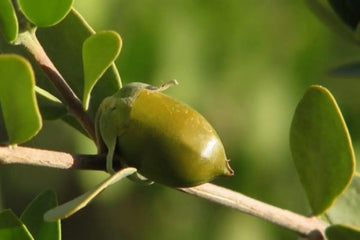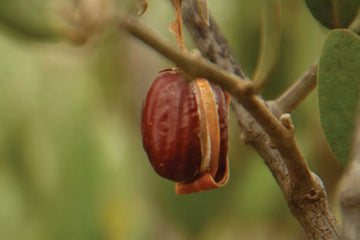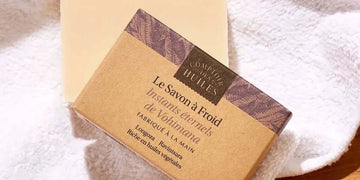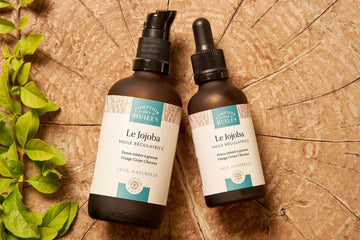Focus on the exceptional plant of Jojoba oil.
Our expert in ethnobotany, Doctor Mamy shares his knowledge with us about the plant and the benefits of Jojoba vegetable oil.

What are the characteristics of the Jojoba plant?
Jojoba, Simmondsia chinensis of the Simmondsiaceae family is a 2.5 m shrub native to southern Arizona and California, as well as northern Mexico. Its foliage is reminiscent of the olive tree.
Its almonds or beans are the size of an olive, from which jojoba oil, a vegetable wax, is extracted. This oil contains almost 80% monounsaturated fatty acids including erucic acid, oleic acid and gadoleic acid. Jojoba oil has the particularity of being almost comparable to the sebum of our skin.
What are the virtues of Jojoba?
Jojoba oil is used in cosmetics for its rebalancing, restructuring, softening and rehydrating qualities. Therefore, this oil is intended for several types of skin: sensitive, dry or acne-prone, but its benefits are mainly recommended for oily skin.
Its uses are multiple: it can be applied as a day or night cream; as a make-up remover or as a hair treatment before shampooing.
On hair, jojoba oil works miracles by nourishing, softening and strengthening it. It can also act on excess sebum on the scalp of oily hair.
It is also appreciated as a massage oil because it penetrates easily and does not leave the feeling of a greasy film on the skin.

In traditional medicine, jojoba oil is used in applications for warts, wounds, abrasions and burns. It is used in massages as a relaxer, to calm pain and as an anti-inflammatory for sprains, osteoarthritis and arthritis.

What are other non-cosmetic uses of Jojoba oil?
In France, the Directorate General for Competition, Consumption and Fraud Prevention (DGCCRF) has included it in the list of vegetable oils considered “new foods”.
Finally, jojoba oil also has pharmaceutical properties: it allows antibiotics to be "microencapsulated", which allows penicillin to be taken orally.
Article written by Doctor RAZAFIMANDIMBY, our expert in Ethnobotany.

Doctor RAZAFIMANDIMBY Hanitriniaina Rabetanety known as Doctor Mamy, is a Malagasy doctor and ethnobotanist, specialist in Malagasy medicinal plants.
His passion and knowledge of plants were passed on to him by his father, who was a “Water and Forestry Agent”. He spent his entire childhood and part of his adolescence in the forests of eastern Madagascar.
From 1994 to 2018, he worked in collaboration with the Société Parfums Christian DIOR, of the LVMH Group, with the Ethnobotanical Innovation Department (DIE). One of the pillars of the DIOR Global Ethnobotany Network, he has worked on more than 350 Malagasy plants with the company. Thus, he is the Co-inventor of a flagship product of DIOR cosmetics.
He also worked on some Malagasy plants with the SILAB Company of Saint Viance, a French cosmetic engineering company which develops “biological active ingredients”.
In May 2013, Dr Mamy represented Madagascar in Ouagadougou, Burkina Faso for the fourth edition of the International African Beauty Forum (FIAB).


